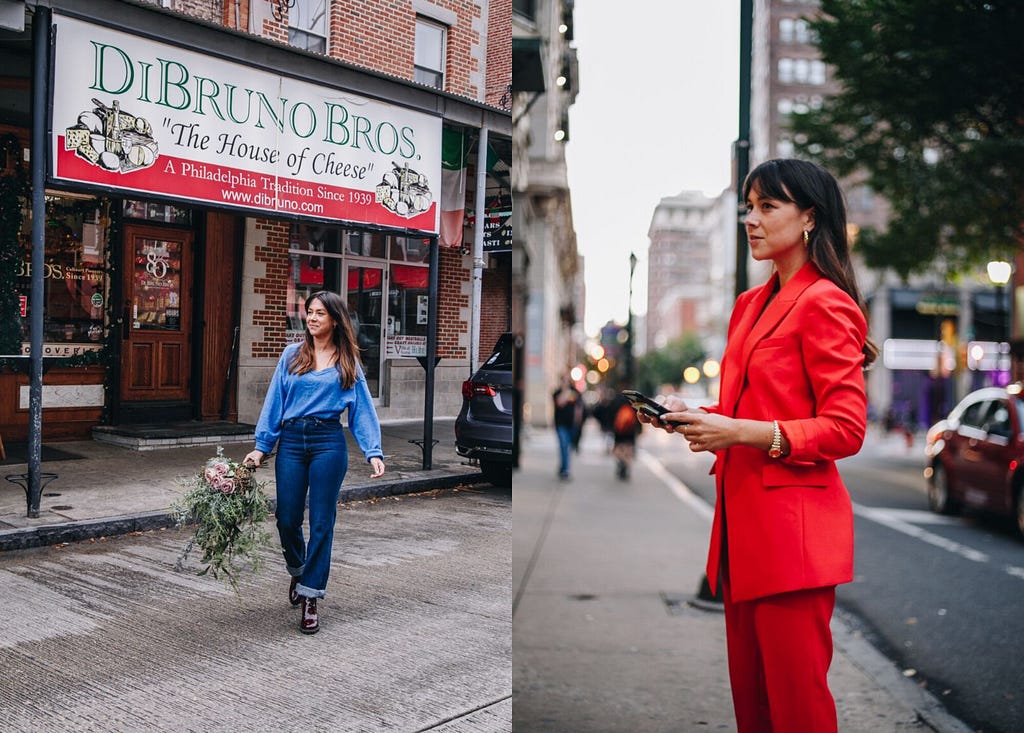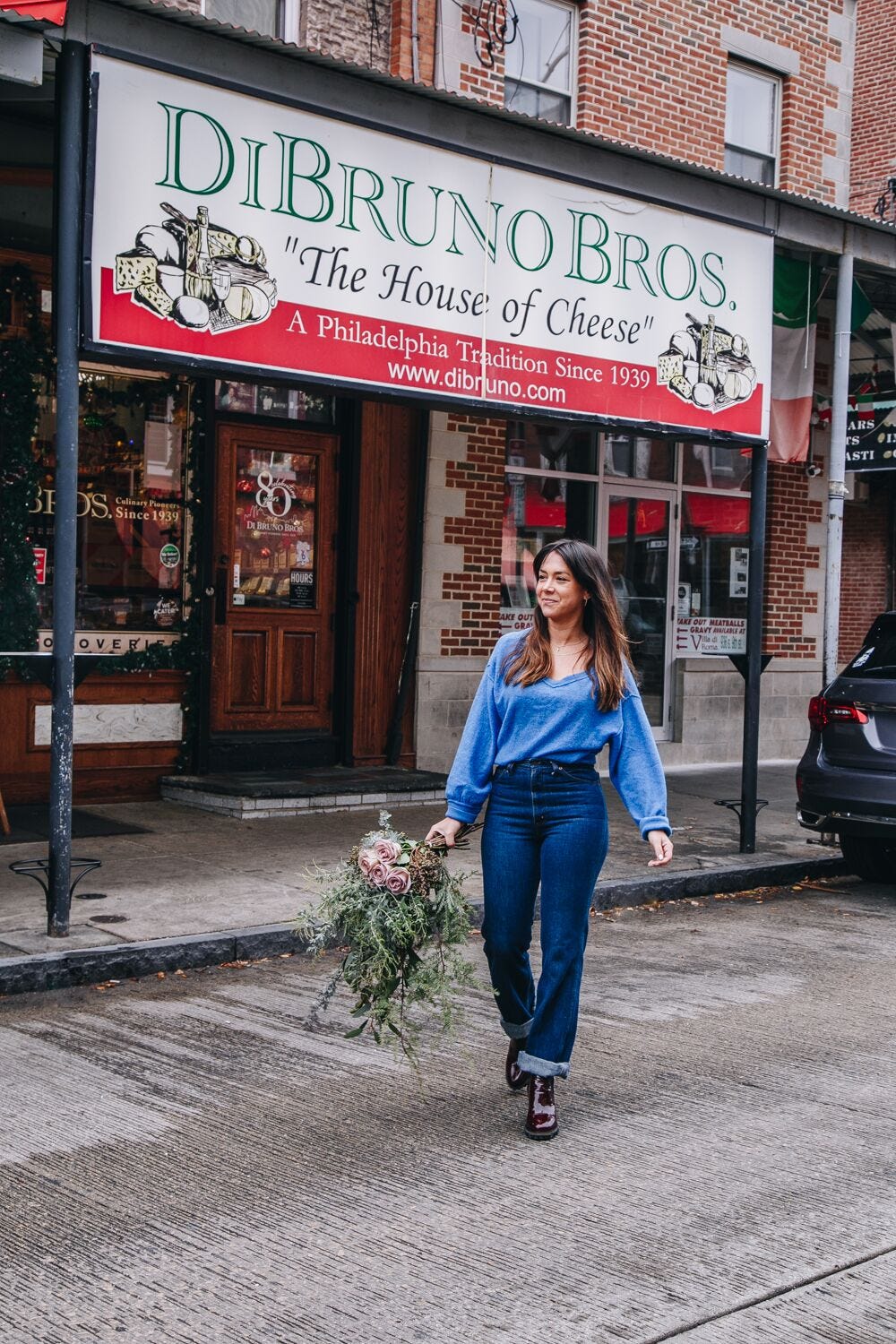
Commit to one change per month. Write down all 12 months and try to fill in the next 3. I started with small things like waking up a half hour earlier a few years ago when I went through my traumatic divorce and business pivot. Since then I’ve changed a long list of things about myself that has made me more abundant in love, success and inspiration.
I had the pleasure to interview Antoinette Marie Johnson. As founder and CEO of Cohere, Antoinette leads the creative agency’s mission to transform under-utilized spaces and stories. Cohere measures their success by how many communities they impact with newly designed cohesive brand experiences. Their clients in real estate, hospitality, food, economic development and nonprofit organizations are tackling issues like innovation, ending world hunger and introducing more plant-based eating to the world. With offices in Philadelphia, Baltimore and NYC, Cohere is poised for growth in 2019.Antoinette regularly contributes to publications such as Forbes, The Business Journal, Technical.ly and other great thought leadership outlets. Her personal mission is to help people become the “best versions of themselves”, which in turn helps our cities reach their own full potential through projects + people. Because of Antoinette’s unique skill set to help stakeholders of multiple projects “cohere” around their shared goals on behalf of the best interest of a project, she has been invited to serve on some impactful boards like The Urban Land Institute and Independent Lodging Council.
Thank you so much for joining us Antoinette! Our readers would love to get to know you a bit better. Can you tell us a bit about your backstory?
I grew up with a single mom in the suburbs of Philadelphia for the first half of my childhood. I joke that I got into branding at the tender age of 9 when my mom remarried and changed my name from Antoinette Malavolta. The name Malavolta translates in Italian to “bad energy”, so changing it to Antoinette Marie Johnson was a no-brainer! But seriously the lessons of frugality and hustle date back to my mother as a young professional woman who did everything she could to create a good home for us. I was determined to make her proud, so I went to college at Temple University, and paid for it by enlisting in the military, serving for a few years and becoming an RA to pay for room and board.
At Temple University I was fascinated by the disparity in North Philly. Such beautiful historical brownstones on Diamond Street abandoned and left to rot. It motivated me to take Urban Studies on as a major and soon I found myself fully devoted to the revitalization movement in Philadelphia. Over the next 15 years I’ve started a non-profit greening group in South Philly, my creative agency centered on beautifying neighborhoods through the transformation of abandoned properties, and now with the focus of creative activation.
Can you share with us the most interesting story from your career? Can you tell us what lessons or ‘take aways’ you learned from that?
The most interesting story for my career and our team’s history is our origin story and how that has helped shape us full circle to the unique growth opportunity we are in now. A few years ago, we discovered that my ex-husband and business partner was misappropriating funds from the business for his sex addiction. Something that hit me pretty hard and was an extreme surprise. Betrayal in both the professional and personal realms. I quickly realized what I had to do, and leaned on my team for support, buying out his shares and pivoting the company to rebrand around a new mission — to help revitalize cities through the power of design. We chose to focus on transforming abandoned spaces and have since helped reshape over 8M square feet of space in cities like Philly, Baltimore, DC, Detroit, NYC and more! The narrowing of our core focus was informed by urban studies background, and amplified our interests in real estate, restaurants and hospitality design. It was a perfect storm of staying true to who you are, enlisting a value system of transparency and only choosing clients who treated us with respect. Since then we’ve tripled in size, grown to have offices in 3 cities, and we are now launching our own placemaking project that is super exciting. The reward for listening to my intuition and looking into the mirror has been phenomenal. Female empowerment is a big part of this story, but it’s not just about women — it’s about anyone who is sick of not reaching their full potential. Even the abandoned spaces!

What do you think makes your company stand out? Can you share a story?
The word “Cohere” is a verb, and it means to become united around shared values and principles. We chose this as the name of our company because in every project where we thrive, we are cohering stakeholders around a vision to help improve a neighborhood or project reach its full potential. That is a gift, and we dedicate ourselves to that cohesion in values on a regular basis.
The best example of this is our latest project at Spring Arts in Philadelphia at the rail park which is a lot like the Highline in NYC.
We are activating the neighborhood with an immersive outdoor experience with native plants, vegetable beds, chickens, a flower shop and cafe. Part of the proceeds of sales go towards building the 2nd stage of the rail park. Cohere has helped several parties in the neighborhood come around the vision for these spaces so that an underserved community can get what its been hoping for, and others can accomplish their dreams. A win-win scenario.
None of us are able to achieve success without some help along the way. Is there a particular person who you are grateful towards who helped get you to where you are? Can you share a story?
John Longacre has been an incredible mentor of mine, and he is a beacon of economic redevelopment in disinvested communities.
Over 10 years ago he took a cold call from me and he took the time to teach me about how to thoughtfully create what the neighborhood needs, not just want the visionary sought to build. I watched him unselfishly align city-wide officials who might otherwise disagree around bipartisan issues that impact residents. The level of intention he took toward the many layers of transforming a neighborhood for the long haul, is a legacy that I will forever credit.
Ok thank you for all that. Now let’s shift to the main focus of this interview. We would like to explore and flesh out the trait of resilience. How would you define resilience? What do you believe are the characteristics or traits of resilient people?
When I think of resiliency I think of my grandmother making homemade pasta and how she taught me to make sure that the dough was thin enough to absorb the sauce, yet thick enough to withstand all of the steps it still had to go through like kneading and cutting. That’s easy for me to relate to as a woman business-owner. I’ve had to remain gentle and kind, holding onto my sensitive feminine side to stay true to my nature, while learning how to be firm, direct and focused so that I can overcome the challenges that most of male mentors have seen before. That delicate balance is difficult but not impossible. And the simple act of relating it to making pasta, something my ancestors and many others have done day in and day out, makes it relatable and less of a heavy lift.
Has there ever been a time that someone told you something was impossible, but you did it anyway? Can you share the story with us?
An impossible time was when I was moving into an office 3x the size of anything I’ve ever built before, with 3x the rent, and soon 3x the employees, all while rebranding the company and divorcing my ex-husband. I would go home numb, sitting in front of the TV and had forgotten to turn it on. I couldn’t see straight sometimes and wondered if I would make it through. But before I knew it, my whole to-do list was checked off and boom — it was all completed and with a high degree of quality. The team rallied and asked how they could help, and as a group we all grew into a team with shared values.
Some tips looking back on how I was able to push through were –
– accepting the help. That was a big moment that allowed for us to do more together as a team.
– calling friends and family. Holding it in does nothing good for anyone.
– journaling. That became the best way for me to document my progress and to process things as they came.
I call these my tools in my toolbox for managing self-care, and I still use them regularly. They are powerful for self-growth.
Did you have any experiences growing up that have contributed to building your resiliency? Can you share a story?
My father left when I was 2, but my mother worked to try and help keep him in my life as a parent. He wasn’t as dedicated. I remember a distinct moment when I was about 6 years old and my bags were packed to sleep over his place. I was so excited, waiting on the stairs of our apartment on a sunny day, daydreaming of what fun we might have together. Would he make me fried chicken and salad like he always does, and might we see my grandmother?
A few hours passed and I soon realized he wasn’t going to show. My mother tried to distract me and make good excuses for him. But I knew that he hadn’t even called and that he probably forgot about me. That story seems so typical and yet it even makes me tear up as I type it. There’s still pain inside from the fear of abandonment and yet it’s the very thing that helps motivate me to do my best.
There is an exercise that helped me name that dynamic of fear and motivation that would be worthwhile for others to try — Let’s try it!
1. Close your eyes and name the safest, happiest early memory of your childhood. Where does that come from? That is your safe place you likely retreat to when you need to feel warm and cared for.
2. Close your eyes and name the earliest memory of fear, abandonment or your scared self. What is it? How does that make you feel? If it conjurs up super raw emotion it’s worth sitting with that fear for awhile and facing it head on. It’s over now. You have gone through the worst parts.

Resilience is like a muscle that can be strengthened. In your opinion, what are 5 steps that someone can take to become more resilient? Please share a story or an example for each.
Strength and resilience are certainly like muscles, and just like any change, the smallest steps are the ones that stick the most.
1. Try the exercise above to name your worst fear. Sit with that regularly. Help yourself become less impacted by the negative emotion.
2. Commit to one change per month. Write down all 12 months and try to fill in the next 3. I started with small things like waking up a half hour earlier a few years ago when I went through my traumatic divorce and business pivot. Since then I’ve changed a long list of things about myself that has made me more abundant in love, success and inspiration.
3. Try meditation for 30 minutes per day. It seems impossible at first but start with once per week, once per month. I meditate twice a day and trust me; I would have told you that sounds crazy a few years ago! The act of keeping still helps improve your focus and reaction to anything that goes wrong. And if we know nothing it is that SOMETHING will go wrong!
4. Write down intentions for your seasons. I did this recently for summer and wrote down things like “jump in a creek on a hot day during the week”,and was so happy with the results. It helped me prioritize non-task related things that ended up improving how I showed up day to day. A component of resiliency.
You are a person of great influence. If you could inspire a movement that would bring the most amount of good to the most amount of people, what would that be? You never know what your idea can trigger. 🙂
As a team we have dedicated ourselves to wellness in the workplace and beyond.
We are cooking plant-based team meals, going alcohol-free as an office place, providing a daily 3pm meditation session. We’re building a company based on the value of diversity in team thought and teammates, but also what we do for 8 hours a day. No longer will I ask any employee to sit behind a screen or device for that long, hence our expansion around organic floral production, locally sourced foods and regenerative agriculture. These are not just buzz worthy techniques to build a healthy work environment. They are an absolute for Cohere and our clients, and I hope someone reads this who is in a place of influence to demand better for their work environment too!
We are blessed that some very prominent leaders read this column. Is there a person in the world, or in the US with whom you would love to have a private breakfast or lunch with, and why? He or she might just see this, especially iif we tag them 🙂
I’ve always admired Oprah and her ability to overcome so many horrible things that happened to her and use it for good. But I’d add a guest and bring Solange Knowles with me because her newfound self worth and creative energy is like the next generation of Oprah! I’d love to see their combined spiritual discussion!
How can our readers follow you on social media?
Instagram @antoinette_mariej and @cohere_co
This was very inspiring. Thank you so much for joining us!
Antoinette Marie Johnson: “To develop resilience, commit to one change per month” was originally published in Authority Magazine on Medium, where people are continuing the conversation by highlighting and responding to this story.



